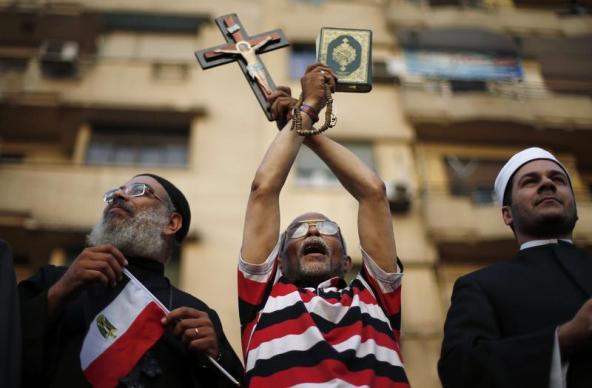by Saniyah al-Bahat
The role of religion has always been a pressing issue for Egyptian sociologists and policy institutions — but over the past four years, it has acquired considerably more attention. The change would appear to relate to shifts in public spiritual rituals and performances, following taboos that had been placed on such forms of religious expression as a result of the rise of Islamism in 2011.
Previously, more Egyptians had practiced what is sometimes called “popular religion,” and now many more are returning to it, while others are studying it as well as the effect Islamism has had upon it.
The functions of religion range from preventing individuals from unacceptable behavior, to building solidarity among adherents, to systematizing an individual’s relationship with God. Understanding popular religion in Egypt requires a multidisciplinary approach to capture the multiple dimensions of this phenomena and the intersections between religion and local culture. It also most go beyond communal identities to consider the agency of individuals: Some Egyptians like to develop their own forms of ritual, independent of a given religious authority.
Popular religion as practiced by Egyptian Muslims and Christians alike has helped nurture a unique sense of Egyptian religious identity distinct from any global gloss on either faith. Popular religion has also presented its own unique interpretations of religion in a way that serves the needs of the believers in a specific locality. For example, while Islamic law formally allows polygamy, “popular religion” in Egypt regarded it as a taboo, fomenting a mindset that rejects it.
One of the more visible aspects of popular religion has to do with the relationship between the world of the living and that of the dead, and the role of psychics in creating a link between the two worlds which formal religion normally regards as totally separate from each other.
Popular religion has also emphasized the personal nature of the relationship between God and the worshiper, disregarding formal religion’s insistence on a standard of piety equally applied to all people. It is a flexible relationship, which can also be negotiated — or brokered — via a pious person who is believed to have worked miracles. Through him or her, believers would seek a solution to their daily problems without turning to local authorities or formal religious institutions. All of this is to say that popular religion has its own theology and theodicy as well as its own cosmology — all of which are fluid and manifest organically in accordance with the local needs of specific communities.
Needless to say, there have been tensions between popular religion and formal religion. Such tensions come to a head when political movements seek to use religion as a means of control or influence over the society. In such cases, it becomes more efficient for a given political power to solicit the support of a standard form of religion with clear structures. The successful manipulation of formal religion entails combating all forms of non-standard, informal religiosities — which is what we saw in Egypt beginning in 2011, with the expanded use of religion as a tool of social control.













